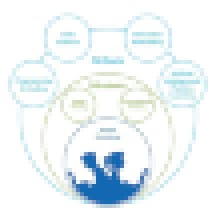We are amidst a Fourth Industrial Revolution. Careers across all fields continue to become more integrated with, and dependent on, rapidly evolving digital technologies. K-12 learning opportunities must prepare students with the necessary skills to succeed in Industry 4.0.
This includes developing competency in social-emotional learning, design thinking and computational thinking, whether or not students eventually study computing or engineering or enter the information technology industry. Students need to develop technological skills combined with critical, creative and social-emotional mindsets to solve complex problems and succeed in today’s postsecondary environment and workforce.
In response to this need, Intel developed a Skills for Innovation (SFI) framework that defines skillsets and mindsets for K-12 learners to successfully engage in innovative learning experiences and ultimately leverage innovation in their lives and careers. The framework has three tiers: social-emotional learning, mindsets for innovation and skillsets for innovation.
Social-emotional learning strategies are foundational for all learners to understand, express and manage their emotions, as well as to develop relationships with others. Mindsets for innovation are the cognitive processes necessary to engage in innovative and complex problem-solving. These include design thinking—processes to innovate new products and services—and computational thinking—using computational methods to address and solve interdisciplinary challenges systematically. Finally, skillsets for innovation combine computational, design and social-emotional skills to solve an applied problem, frequently resulting in the creation or use of a computer program, data visualization or computational model as a problem-solving tool.

The Skills for Innovation program provides Starter Pack lesson plans and professional learning resources that connect real-world problem-solving and 21st-century learning with core disciplines. Lauren Lee, a fifth grade teacher at Ovington School, notes, “This course allowed me to focus on how children use technology to solve real-world problems through mathematics, science and literacy. Everything I learned [from SFI] can be applied to any subject area that I teach.”
Students also experienced and noticed the connections between technology and their learning when learning Skills for Innovation. A secondary student notes, “My first impression of the activity was [that it was] just about learning about conserving wildlife. I never expected technology and wildlife conservation to be together in one class.”
Building on the connections between technology and disciplinary learning already present in Intel Skills for Innovation, Intel partnered with Digital Promise to develop Skills for Innovation Learning Pathways and a competency profile articulating a K-12 progression for learning, Skillsets for Innovation. This learning pathway and accompanying competency profile provide a clear and cumulative learning trajectory for key competencies within each Skillset for Innovation, leveraging social-emotional skills, computational thinking and design thinking to solve applied problems using technology. The four skillsets—Programming and Coding, Data Science, Simulation and Modeling, and Artificial Intelligence and Machine Learning—represent unique problem-solving approaches that can be used independently or in combination to learn about a topic and practice problem-solving and solution design.
The Skills for Innovation Learning Pathways are guided by competency profiles—a set of resources to help educators, administrators and district leaders identify, design and connect to innovative learning opportunities for K-12 classrooms. The profiles are intended to provide guidance for schools and districts to customize a consistent, cumulative and competency-based sequence of learning experiences aligned to standards and their ongoing school and community initiatives.
Dr. Brooke Morgan is Coordinator of Innovative Learning for Talladega County Schools in Alabama. She has worked with Digital Promise to develop a competency-based computational thinking learning pathway. Highlighting the importance of the pathway, she shares, "Developing competency-based pathways has provided our educators with a detailed roadmap including grade-level and content-specific lessons and resources to integrate equitable computational thinking opportunities for our students." Using the Skills for Innovation Skillsets Competency Profile, schools and districts can design learning opportunities that are developmentally appropriate along a learning progression, aligned with standards, initiatives and existing curricula and integrated with core content areas for synergistic disciplinary learning. The profile provides “look fors” detailing what the competency will look like in the classroom, alignment with disciplinary standards and example lessons from the Skills for Innovation Starter Pack.
Skillsets for Innovation are essential for youth to succeed in today's world and workforce. Yet, there are limited, inequitable opportunities for innovative learning in many classrooms today. Intel’s Skills for Innovation Framework, along with the Skills for Innovation Learning Pathways and Competency Profiles, support schools and districts to design learning pathways to implement innovative learning opportunities for students across disciplines in consistent and cumulative ways. These competencies are foundational for developing genuinely innovative learning experiences for students, as well as providing the necessary digital tools and pedagogies for teachers to enact them.



